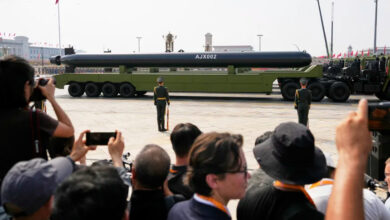
Human rights activists welcomed the cabinet's decision to amend the Military Justice Code of 1966 to allow the appeal of verdicts, yet they said this does not remove the negative effects of trying civilians before military courts.
Nasser Amin, director of the Arab Center for the Independence of the Judiciary, said the trial of civilians before military courts should be in cases of extreme necessity.
Hafez Abu Seada, secretary general of the Egyptian Organization for Human Rights, said the amendments are in line with international standards.
Mohamed Zarea, director of the Arab Organization for Penal Reform, said the constitution determines specific cases where civilians can stand before military courts, such as assault on military installations, equipment or funds.
The amendments allow appeals in misdemeanor verdicts on two stages instead of one and require the opinion of the mufti in death sentences just like the normal judiciary system.
Nasser Amin, director of the Arab Center for the Independence of the Judiciary, said the trial of civilians before military courts should be in cases of extreme necessity.
Hafez Abu Seada, secretary general of the Egyptian Organization for Human Rights, said the amendments are in line with international standards.
Mohamed Zarea, director of the Arab Organization for Penal Reform, said the constitution determines specific cases where civilians can stand before military courts, such as assault on military installations, equipment or funds.
The amendments allow appeals in misdemeanor verdicts on two stages instead of one and require the opinion of the mufti in death sentences just like the normal judiciary system.
Edited translation from Al-Masry Al-Youm




